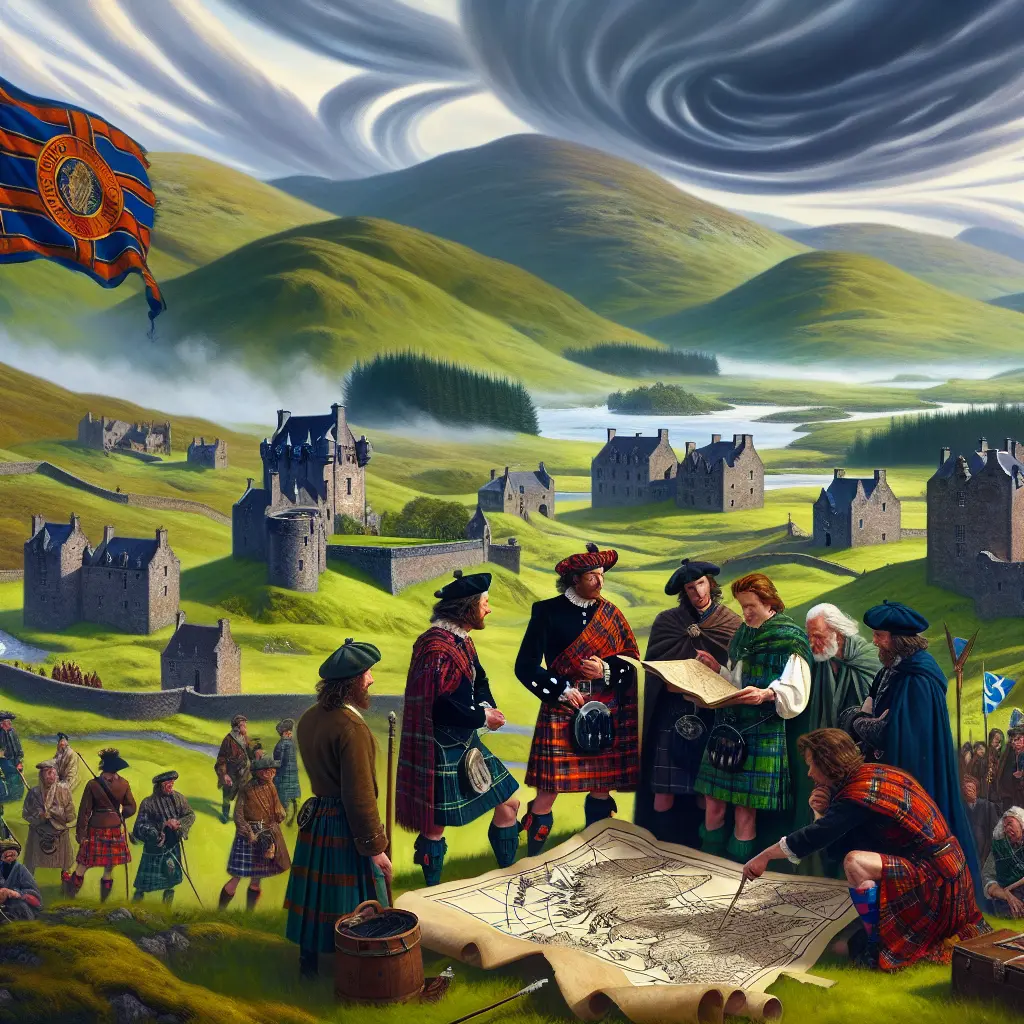
The Scottish clan system, a tapestry woven with the threads of history, tradition, and culture, has been a defining element of Scottish heritage for centuries. This intricate system, blending family loyalty with fierce rivalry, has significantly shaped Scotland's social structure and historical narrative. Understanding the historical significance of Scottish clans reveals much about the country's past and its ongoing cultural evolution.
The Roots of the Scottish Clan System
The history of Scottish clans dates back to the 12th century, characterized by kinship groups led by a clan chief. These clans were more than just family units; they were complex societies within themselves, often engaging in Scottish feudalism and clan warfare in Scotland. Highland clans and Lowland clans, although sharing a common allegiance to kinship, often had distinct identities shaped by their geographical territories.
Clan Culture and Traditions
Scottish clan traditions are rich and varied, ranging from the wearing of Scottish clan tartans—a patterned fabric that distinguishes one clan from another—to the unique Scottish clan symbols each clan bears. These symbols and tartans are not merely ornamental but serve as a heraldic badge of identity and pride. The genealogy of Scottish clans, meticulously preserved, helps trace the lineage and heritage of Scotland’s families, providing a window into the nation's historical narrative.
Clan Chiefs and Social Structure
The role of clans in Scottish history is significantly anchored by the clan chiefs, who were not only leaders but also custodians of their clans' laws and lands. The chiefs played a crucial role in forming Scottish clan alliances, which could influence political outcomes and were essential during periods of clan warfare in Scotland.
Clan Gatherings and Preservation of History
In contemporary times, Scottish clan gatherings are vital events that reinforce clan unity and allow members to engage with their history. These gatherings are not just social events; they are symbolic reunions that breathe life into historical ties and celebrate ongoing Scottish heritage. The preservation of Scottish clan history remains a focal point for many historians and cultural enthusiasts who strive to keep this unique cultural identity alive.
Impact on Scottish Society
The impact of clans on Scottish society stretches beyond historical battles and alliances. The clan system has influenced various aspects of social life, including legal proceedings and land ownership. Over time, as Scotland transitioned from a clan-based society to a more centralized legal system, the influence of clans saw a relative decline. However, the echoes of this system are still evident in Scottish societal norms and cultural practices.
Recent Discoveries and Connections
Intriguingly, recent research has unearthed that Stonehenge's 'altar stone' might have originated from Scotland, not Wales as previously believed. This revelation not only deepens the mystery around Stonehenge but also highlights the widespread influence and reach of ancient Scottish stones, possibly linked to early clan territories or migration patterns.
Economic Growth and Cultural Investments
The UK's recent GDP growth by 0.6% in the second quarter can also have indirect implications for cultural investments in Scotland, including funding for preserving historical sites linked to clan heritage. Economic stability allows for enhanced conservation efforts and promotes tourism connected to Scotland’s rich clan history.
Contemporary Challenges and Clan System Relevance
While modern Scotland faces various challenges, ranging from economic issues to social changes, the relevance of the clan system remains significant in understanding regional identities and historical affiliations. Issues like antisocial behavior, highlighted by recent protests affecting police actions, can sometimes be viewed through a historical lens, considering the tightly-knit community structures fostered by clans.
Conclusion
The historical significance of Scottish clans is not just a relic of the past but a living, evolving story that continues to shape Scotland. From the valiant tales of clan warfare in Scotland to the peaceful gatherings that now celebrate Scottish clan traditions, the tapestry of clan culture is a vital part of Scotland’s identity.
As we explore these ancient systems, we are reminded of the power of heritage in shaping not only how we view the past but also how we navigate the future. Whether draped in a tartan or exploring the genealogical branches of a family tree, those with Scottish ancestry find a profound connection in the legacy of clans.
Thank you for joining me on this journey through Scotland’s heart and history. May the pride and traditions of Scottish clans continue to inspire generations across the globe.
Authored by Isabella Morris